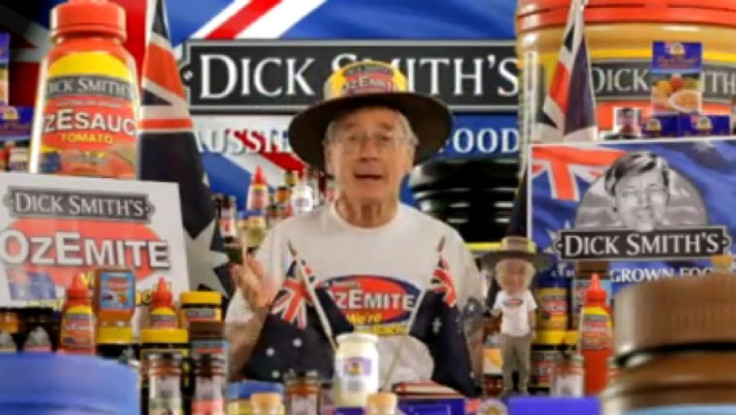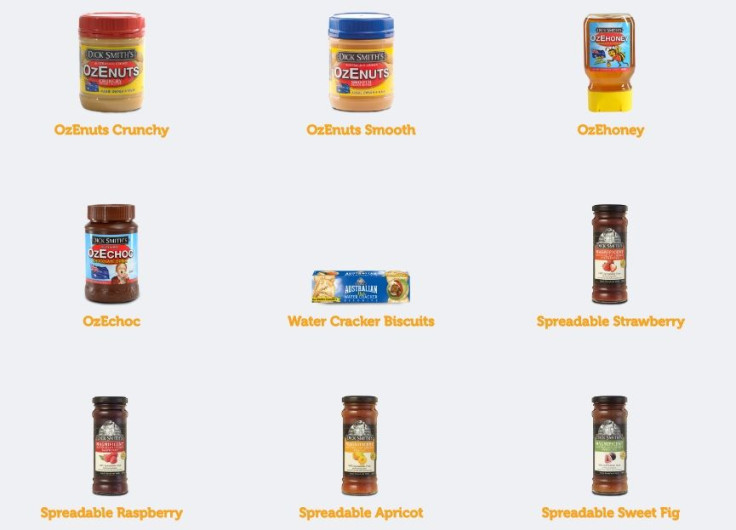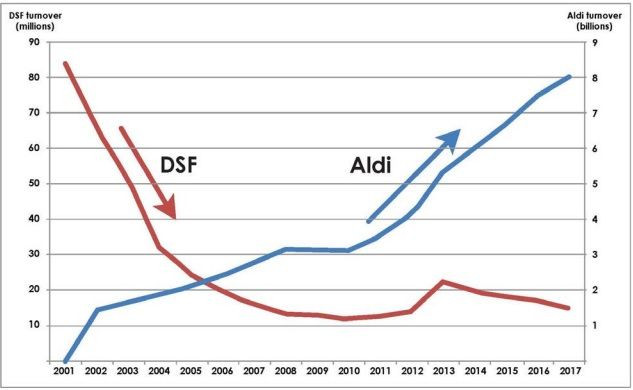Dick Smith Foods to close, blames ‘secretive’ Aldi

It was that “secretive Germany company” Aldi’s fault that Dick Smith Foods has to close down. In an emotional announcement on Thursday, Australian businessman Dick Smith admitted defeat in the retailers’ war, saying the German-owned discount supermarket chain’s “secretive” operation ended his company’s operation after 19 years in the business. But Aldi has responded there’s “no secret” at all.
The titular Dick Smith founder said he would be shutting the business down despite gaining support from local supermarkets Coles, Woolworths and IGA. Dick Smith Foods has 13 products that are mostly breakfast items, like peanut butter, cereal and jams. Smith said he would be phasing them out in the next 12 months.

“In two years’ time, we will go out of business, so I’m closing it down now when times are good,” he told the media. “It’s a decision forced on me because most people just want the cheapest prices, and the cheapest prices will always come from overseas.”
He said the company generated total retails sales of about $480 million for farmers and processors and gave more than $10 million to charity. But Aldi’s entrance in Australia has apparently put a stop to all that.
The final “nail in the coffin,” he said, was Aldi’s win as the most trusted brand in Australia in a survey. The foreign company won over Australian companies, like Blackmores and Qantas.
“It’s shown the message is if you can sell cheaper, people will vote you as the most popular and give you incredible support,” he said.
Smith’s letters
Smith’s announcement came after he sent two letters, one to the execs of Coles, Woolworths and Metcash Group (IGA), and the other to the German owners of Aldi, Karl Albrecht Jr and Beate Heister. In his letter to John Durkan (managing director of Coles), Bradford Banducci (Woolworths CEO) and Jeff Adams (CEO of Metcash), he informed them of his decision to close Dick Smith Foods while thanking them for their support over the last 19 years.
He called Aldi a “secretive” company that has bagged the coveted title of the most trusted brand in Australia. And although he blamed Aldi for the collapse of his company, he warned that there would be others that would take over the country as well.
“It won’t just be Aldi, it will be Costco and Amazon as well. These companies do not share the wealth with Aussie employees in a way that has been traditional in our country. They have ascertained that while all modern democracies have a minimum wage, there is no law in relation to minimum staffing levels. They use this loophole to employ less staff, so the wealth is directed to the owners of the business rather than shared in a fair way with employees. There are reports that Aldi stores have less than 25% of the staff of one of your stores of similar turnover,” he wrote.

And to the owners of Aldi, he wrote an open letter asking them why were they so secretive. He criticised the two for apparently not even showing their face to the media when they came to Australia one time.
“Our tradition here is one of openness. However, I notice much of the reporting on your company mentions secretiveness. It appears that neither of you have ever conducted a media interview on your plans for the expansion of Aldi.
“Can I ask why you are so secretive? Surely, being worth $30 billion US dollars (that’s $40.63 billion Australian dollars) you have a responsibility to be open and explain your long term plans to all those who are affected.”
Smith invited them to come to Australia to explain their plans to Australian parents and politicians. He also questioned Albrecht Jr and Heister of their business practice of employing less workers to result in lower prices and higher profits. “When will enough be enough?” he wrote.
Aldi responds
Aldi Australia chief executive Tom Daunt has refuted Smith’s claims that the company employs lesser workers. He said they employ more than 11,500 Australians and partners with more than 1,000 local suppliers.
“As a privately owned business, we have never sought to ‘maximise’ profits at the cost of something or someone else. Rather, we opt for long-term sustainable growth strategies,” Daunt said, adding that the company’s intention in Australia were “no secret.”
“We do not cut corners, we do not abuse our market power, we do not mislead our customers,” he continued. “We do not avoid tax payments, we do not squeeze our suppliers. We keep things simple and we focus on our attention on what matters most to consumers.”





















